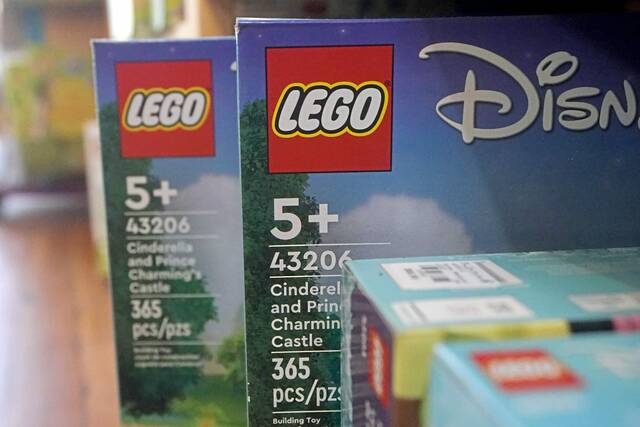Twenty years ago, John Belak was watching David Letterman, listening to Tom Hanks gush about his electric-powered vehicle.
“He was telling him about how he got an electric car, and he was going to save the world,” the Murrysville man said.
At the time, Belak was paying about $40 a week for gas.
Pennsylvania Gov. Josh Shapiro signed a bill into law last week that will require electric and plug-in hybrid vehicle owners to pay an annual tax that will be directed toward road maintenance. It will mean electric vehicle owners such as Belak will have to pay more to keep their cars on the road.
The law requires electric vehicle owners to pay $200 in taxes when renewing their vehicle registration starting Jan. 1. Plug-in hybrid electric vehicle owners will pay a flat annual fee equal to 25% of the electric vehicle fee — or $50. After the first year, the tax will rise to $250 for electric vehicles. The third year’s tax will be adjusted for inflation.
The fee would be assessed simultaneously with the annual vehicle registration, though the state Department of Transportation has been asked to give motorists the option to pay the EV fee in monthly installments.
If it is not paid, however, the registration will not be considered valid for law enforcement purposes.
Pennsylvania is relatively late to this game; at least 36 other states already have a similar fee in place.
The bill replaces the Alternative Fuels Tax, which has been in effect since 1997 and taxes vehicles that do not run on gasoline. Gasoline-powered vehicles pay a fuel tax of 0.567 cents per gallon. Electric-powered vehicles pay a fuel tax of 0.0172 cents per kilowatt, according to the state Department of Revenue. One gallon of gas will fuel an average car for about 28 miles, while 1 kilowatt of electricity will power an electric car about 4 miles.
For Belak, Hanks’ opinion was enough to persuade him to make the switch to an electric vehicle, which he said was cheaper than buying and maintaining a gas-powered car, even in 2004. Now, Belak is driving a 2013 Tesla Model X that costs $3 a week to power.
He is an advocate of electric vehicles, serving as president of the Three Rivers Electric Vehicle Association in Murrysville.
“They’re quieter, they ride differently, they have better performance,” Belak said.
The Alternative Fuels Tax was created to help fund road projects. Currently, electric vehicle owners are required to file monthly statements with the state Department of Revenue that determines their fee for the Alternative Fuels Tax. However, state Sen. Greg Rothman, R-Camp Hill, who sponsored the bill, said filing for the Alternative Fuels Tax is “cumbersome and ignored by many.”
The Electrification Coalition — a Washington, D.C.-based nonprofit organization that encourages electric vehicle use — says the new law will help close a gap in gas tax revenues caused by inflation and increasing gasoline vehicle efficiency.
Tax skeptic
Belak is skeptical of the bill’s intentions. To him, an annual fuels tax on electric vehicles signifies a federal effort to slow the transition from internal combustion engine vehicles to electric vehicles. This shift is part of the federal sustainability plan, which aims to reduce U.S. greenhouse gas emissions by 50% to 52% from 2005 levels by 2030.
“All the arguments that they have against the cars … it’s just a bunch of BS,” Belak said.
State Sen. Wayne Langerholc, R-Cambria County, who supported the bill, denied any claims insinuating the annual tax would do anything other than fund state government entities.
“There’s always going to be people who nit-pick legislation,” Langerholc said. “I’m glad that we’re able to get this across the finish line.”
The Electrification Coalition claims the tax will help close a gap in road funding, but that it may not be the most equitable way to do so.
“The transition to electric vehicles is actually an opportunity to have a larger conversation about a kind of national overhaul of how we’re generating this necessary road funding,” said Max Turner, campaign organizer at the coalition. “We think that a mileage-based user fee or a vehicle-miles-traveled fee for all vehicles would be a more equitable method of filling the gap in road maintenance funding.”
Belak agrees that a mileage-based user fee would be more equitable but thinks even that wouldn’t level the playing field for electric vehicle owners.
“People who own electric vehicles have no qualms about paying the equal amount for miles driven,” he said. “But if they only drive, say, 2,000 miles a year, it’s just not fair.”
The cost of the annual tax was calculated based on the average annual gas tax paid by owners of gas-powered vehicles. If gas-powered car owners drive 12,000 miles a year on average, senators agreed $290 in annual taxes on electric vehicles would be an equitable number.
Noah Barnes, communications director at the Electrification Coalition, said owning an electric vehicle is, on average, slightly more expensive than owning a gas vehicle. However, the cost to maintain the vehicle is significantly cheaper.
“On average, to fuel an electric vehicle, it’s about the equivalent of paying a dollar per gallon of gas,” Barnes said. “Electric vehicles also require a lot less maintenance. … So, overall, over the life of the vehicle, it is definitely cheaper.”
According to the coalition, in Pennsylvania there were 23,074 fully electric cars sold and 11,683 plug-in hybrid cars sold, accounting for 6% of all vehicles sold last year. In 2022, hybrid and electric vehicles accounted for 4.1% of vehicles sold.
Legislators said this bill effectively “levels the playing field” between gas-powered and electric cars. “Our goal here was to get something done,” Langerholc said. “Every day that we did not act on this, we were leaving money on the table.”








